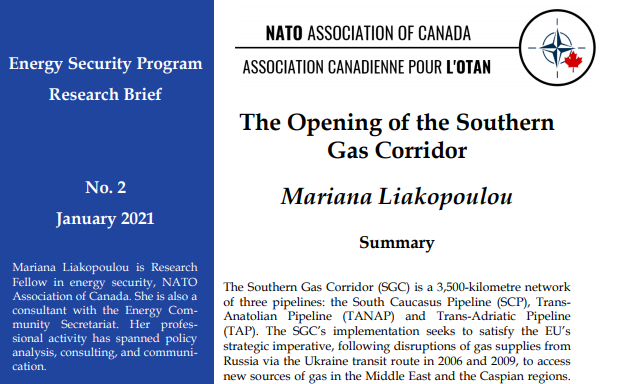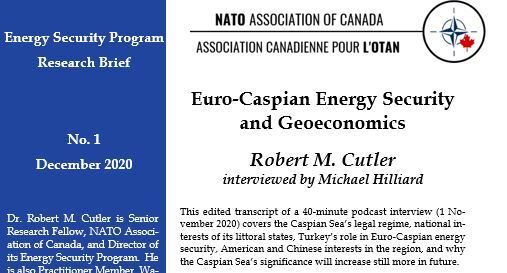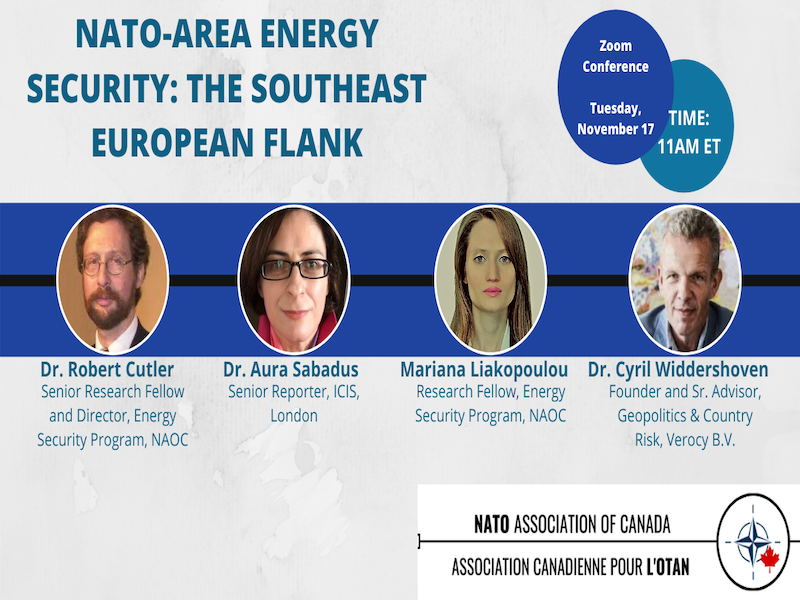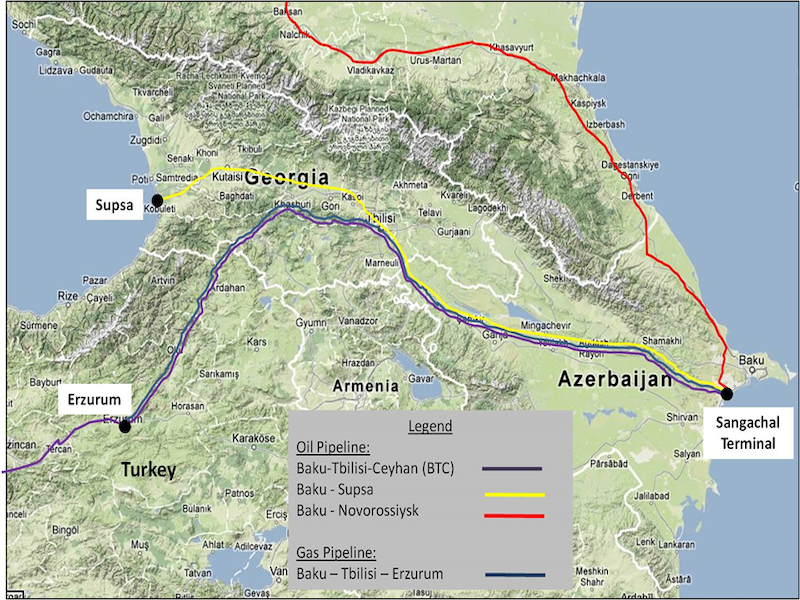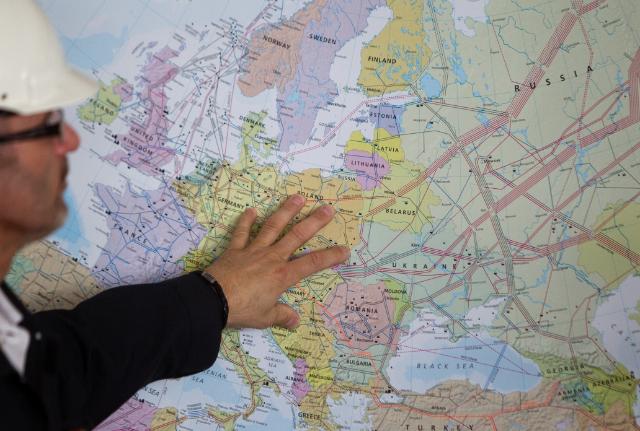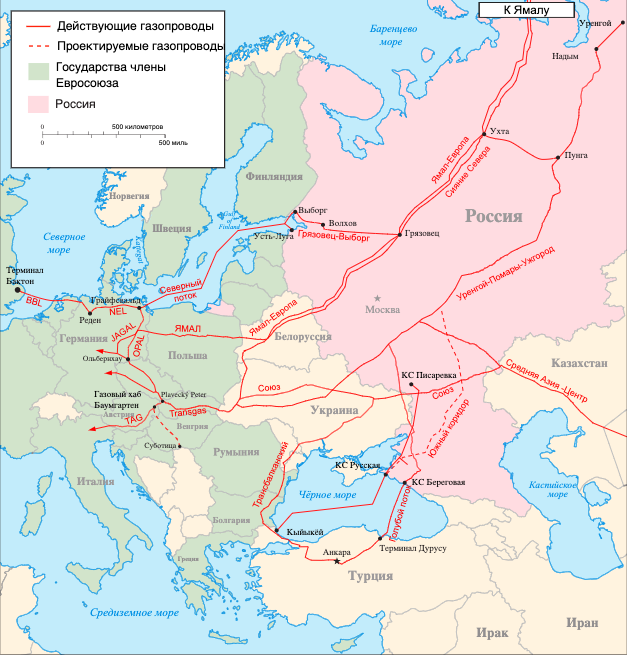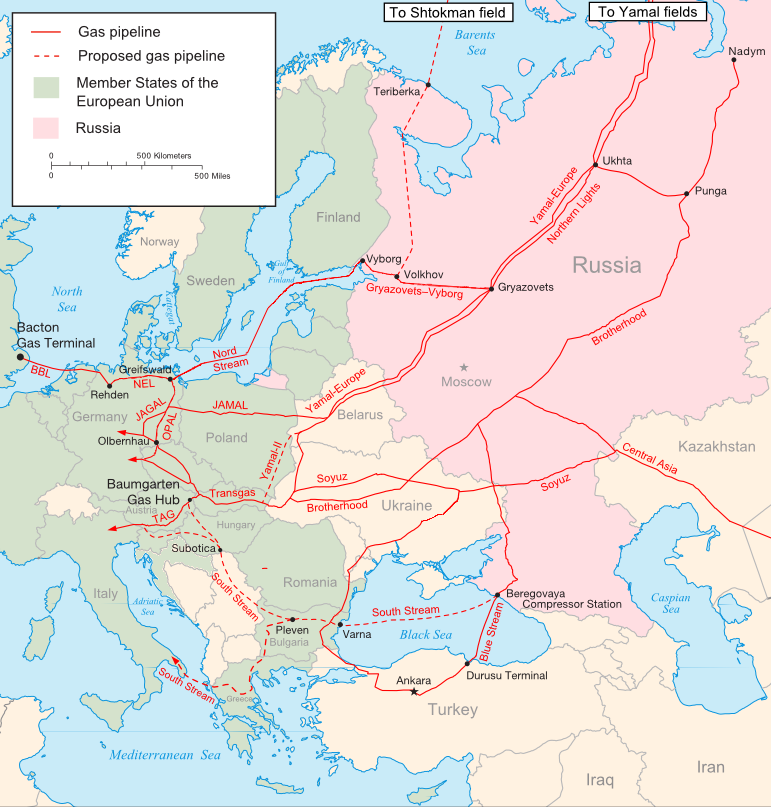Download: Energy Security Research Brief No. 2 January 2021 (11 pages, 315KB) Title: The Opening of the Southern Gas CorridorAuthor: Mariana LiakopoulouSeries: Energy Security Program Research Brief No. 2Date: January 2021 The Southern Gas Corridor (SGC) is a 3,500-kilometre network of three pipelines: the South Caucasus Pipeline (SCP), Trans- Anatolian Pipeline (TANAP) and Trans-Adriatic Pipeline Read More…
Tag: Energy Security
Euro-Caspian Energy Security and Geoeconomics
This edited transcript of a 40-minute podcast interview (1 November 2020) covers the Caspian Sea’s legal regime, national interests of its littoral states, Turkey’s role in Euro-Caspian energy security, American and Chinese interests in the region, and why the Caspian Sea’s significance will increase still more in future.
NATO-Area Energy Security: The Southeast European Flank
Title: NATO-Area Energy Security: The Southeast European FlankFeatured Speakers: Dr. Robert M. Cutler Senior Research Fellow and Director, Energy Security Program NAOC; Dr. Aura Sabadus Senior Reporter, ICIS London ; Mariana Liakopoulou Research Fellow, Energy Security Program NAOC ; Dr. Cyril Widdershoven Founder and Sr. Advisor Geopolitics and Country Risk Verocy B.V. Series: Energy Security Program Webinar Read More…
What Energy Security Means For Canada and the World
Title: What Energy Security Means For Canada and the WorldFeatured Speakers: Dr. Robert M. Cutler Senior Research Fellow and Director, Energy Security Program NAOC; Allan Fogwill President and CEO Canadian Energy Research Institute; Dr. Monica Gattinger Director Institute for Science, Society and Policy University of Ottawa; Dr. Richard Norris Managing Partner Pandreco Energy Advisors Series: Energy Read More…
What Next for the Nordstream 2 Pipeline?
Title: What’s Next for the Nordstream 2 Pipeline?Featured Speakers: Dr. Robert M. Cutler (Senior Research Fellow and Director of the Energy Security Program at NATO Association of Canada), Dr. Sławomir Dębski (Director, Polish Institute of International Affairs), Dr. Alan Riley (Senior Fellow, Atlantic Council), Dr. Maria Shagina (Centre for EastEuropean Studies, University of Zurich)Series: Energy Read More…
Where does energy fit in the new military clashes with Armenia?
An analytical commentary by Robert M. Cutler, Director of the Energy Security Program, titled “Where does energy fit in the new military clashes with Armenia?“, was published on 28 July 2020 by the independent News.Az Online News Agency As is well known by now, in mid-July new military hostilities erupted between Azerbaijan and Armenia. They Read More…
Euro-Caspian Energy Relations in the Post-COVID World
On 11 June 2020, Dr. Robert M. Cutler, Director of the Energy Security Program, spoke to a webinar “Energy Issues in the Post-Covid World”, organized by the Center for Analysis of International Relations, Baku, Azerbaijan. This is a transcript of his remarks.
Multilateralism Amidst the Oil Price War
Author Mary Peplinski explains the global economic and security implications of the oil price war and explains why a multilateral response is needed to help the North American energy sector recover.
U.S. Passes New Geopolitical Energy Legislation
In the rush of activity at the end of last year, in preparation for adjournment, the U.S. Congress approved and President Donald Trump signed legislation including provisions for American foreign economic policy, and energy policy in particular. The one that has got perhaps more attention was the Eastern Mediterranean Security and Energy Partnership Act of Read More…
European Natural Gas Geopolitics on a Collision Course?
Following the Dutch discovery of the Groningen field, and British, Norwegian and Danish discoveries in the North Sea during the 1960s and 1970s, natural gas appeared to offer Europe an opportunity to decrease its dependence on Middle Eastern oil. However, demand for gas quickly outpaced supply, leading West European buyers increasingly to rely on Soviet Read More…

